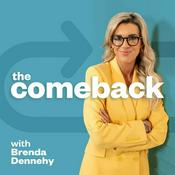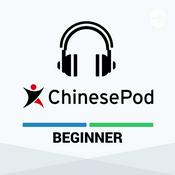82 episodes
- In this episode we are joined by Brendan Moy and Adam Gorman to explore an important question for coaches: How can we help learners explore and improve their skills more effectively? We discuss how we can encourage athletes to explore movement solutions by manipulating aspects of the task, like the rules or structure, rather than telling them exactly what to do.
If you're getting value from our podcast check out our membership options and coaching community at www.theconstraintscollective.com where you can access podcast summaries, narrated presentations, early release podcasts and monthly online meet ups with experts from the Constraints Collective.
Support the running of the podcast at patreon.com/TheConstraintsCollective
Link to article: https://www.tandfonline.com/doi/full/10.1080/02640414.2024.2345415 - Daniel Lycett is the Head of PE & Sport at St David’s College. He is an experienced physical educator working across primary and secondary education, bringing a practical, people-centred approach to education and learning. Daniel holds a BA (Hons) in Physical Education Teaching and Coaching from York St John University.
If you're getting value from our podcast check out our membership options and coaching community at www.theconstraintscollective.com where you can access podcast summaries, narrated presentations, early release podcasts and monthly online meet ups with experts from the Constraints Collective.
Support the running of the podcast at patreon.com/TheConstraintsCollective - If you're getting value from our podcast check out our membership options and coaching community at www.theconstraintscollective.com where you can access podcast summaries, narrated presentations, early release podcasts and monthly online meet ups with experts from the Constraints Collective.
Support the running of the podcast at patreon.com/TheConstraintsCollective
This episode kicks a hole in the idea that better performance comes from better instructions. Using Ian's recent golf putting experience, the conversation shows how real learning happens when you change the task, not the technique. By manipulating targets, space, and environment, skill starts to emerge naturally without the coach standing over the athlete narrating every movement.
Enjoy! - If you're getting value from our podcast check out our membership options and coaching community at www.theconstraintscollective.com where you can access podcast summaries, narrated presentations, early release podcasts and monthly online meet ups with experts from the Constraints Collective.
Support the running of the podcast at patreon.com/TheConstraintsCollective
In this episode we discuss Jia Yi's long and challenging journey in developing nonlinear pedagogy, including early resistance within academia, rejected publications, and the persistence required to stay aligned with a strong theoretical vision.
We explore how those early ideas have evolved into a framework that is now embedded within coach education systems, including adoption at a national curriculum level within physical education.
The episode highlights:
The importance of staying committed to ideas that challenge traditional practice
How theory and practice can co-evolve over time
Why nonlinear pedagogy resonates so strongly with real-world coaching environments
What coaches can learn from the process behind long-term innovation, not just the final outcomes
Enjoy!! - Tabai Matson is a globally experienced rugby coach with a career spanning elite club and international rugby across Japan, Australia, New Zealand, the Pacific, South America, and Europe.
After playing and coaching Yamaha Júbilo, he moved into coaching roles in Australia before returning to New Zealand, where he led Canterbury to the 2012 ITM Cup title. He has since worked across the international game, including consulting with Brazil Rugby ahead of the Rio Olympics, coaching with the Māori All Blacks, and joining Fiji’s staff for their Pacific Nations Cup win and the 2015 Rugby World Cup.
At club level, Matson has coached with the Crusaders in Super Rugby and Harlequins in the English Premiership, where he later served as Performance Director. In 2024, he was appointed head coach of Black Rams Tokyo in Japan Rugby League One.
If you're getting value from our podcast check out our membership options and coaching community at www.theconstraintscollective.com where you can access podcast summaries, narrated presentations, early release podcasts and monthly online meet ups with experts from the Constraints Collective.
Support the running of the podcast at patreon.com/TheConstraintsCollective
More Education podcasts
Trending Education podcasts
About The Constraints Collective
Our mission is to transform practice environments in sport by equipping coaches with the knowledge, understanding and skills to bridge the gap between skill acquisition theory and practice.
Podcast websiteListen to The Constraints Collective, Law of Attraction Changed My Life and many other podcasts from around the world with the radio.net app

Get the free radio.net app
- Stations and podcasts to bookmark
- Stream via Wi-Fi or Bluetooth
- Supports Carplay & Android Auto
- Many other app features
Get the free radio.net app
- Stations and podcasts to bookmark
- Stream via Wi-Fi or Bluetooth
- Supports Carplay & Android Auto
- Many other app features


The Constraints Collective
Scan code,
download the app,
start listening.
download the app,
start listening.



































